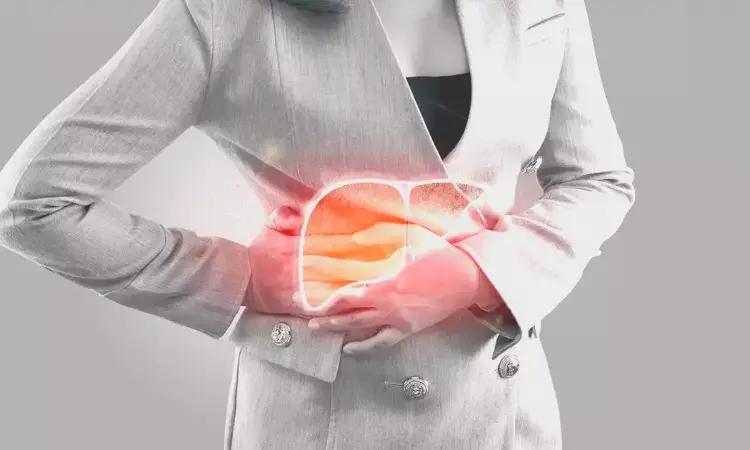- Home
- Medical news & Guidelines
- Anesthesiology
- Cardiology and CTVS
- Critical Care
- Dentistry
- Dermatology
- Diabetes and Endocrinology
- ENT
- Gastroenterology
- Medicine
- Nephrology
- Neurology
- Obstretics-Gynaecology
- Oncology
- Ophthalmology
- Orthopaedics
- Pediatrics-Neonatology
- Psychiatry
- Pulmonology
- Radiology
- Surgery
- Urology
- Laboratory Medicine
- Diet
- Nursing
- Paramedical
- Physiotherapy
- Health news
- Fact Check
- Bone Health Fact Check
- Brain Health Fact Check
- Cancer Related Fact Check
- Child Care Fact Check
- Dental and oral health fact check
- Diabetes and metabolic health fact check
- Diet and Nutrition Fact Check
- Eye and ENT Care Fact Check
- Fitness fact check
- Gut health fact check
- Heart health fact check
- Kidney health fact check
- Medical education fact check
- Men's health fact check
- Respiratory fact check
- Skin and hair care fact check
- Vaccine and Immunization fact check
- Women's health fact check
- AYUSH
- State News
- Andaman and Nicobar Islands
- Andhra Pradesh
- Arunachal Pradesh
- Assam
- Bihar
- Chandigarh
- Chattisgarh
- Dadra and Nagar Haveli
- Daman and Diu
- Delhi
- Goa
- Gujarat
- Haryana
- Himachal Pradesh
- Jammu & Kashmir
- Jharkhand
- Karnataka
- Kerala
- Ladakh
- Lakshadweep
- Madhya Pradesh
- Maharashtra
- Manipur
- Meghalaya
- Mizoram
- Nagaland
- Odisha
- Puducherry
- Punjab
- Rajasthan
- Sikkim
- Tamil Nadu
- Telangana
- Tripura
- Uttar Pradesh
- Uttrakhand
- West Bengal
- Medical Education
- Industry
Long term Probiotics use helpful for treating nonalcoholic fatty liver disease

China: In patients with nonalcoholic fatty liver disease (NAFLD), probiotic therapy has a good regulating effect on steatosis, liver function, blood glucose level, blood lipid and insulin level, a recent study published in the journal Medicine has shown.
The findings suggest the feasibility of probiotics for treating NAFLD. Several strains of Bifidobacterium and Lactobacillus can compete with and displace pathogenic bacteria. Therefore, probiotics may improve microbial composition and intestinal ecology, compete with and replace pathogenic bacteria, and prevent the overgrowth of small intestinal bacteria.
Nonalcoholic fatty liver disease is a common chronic liver disease caused by drug-induced or nonalcoholic fatty deposition in the liver and hepatocyte steatosis. In the initial stage, there are no apparent symptoms of the disease. In the absence of timely intervention, the condition can progress to nonalcoholic liver fibrosis, nonalcoholic steatohepatitis, and even liver cancer and liver cirrhosis in the later stage.
With the increasing incidence of NAFLD, it is crucial to find therapeutic methods to reduce the progression and occurrence of NAFLD, the authors noted. Considering intestinal flora is closely related to NAFLD pathogenesis, Sufang Zhou and associates from China aimed to systematically evaluate the safety and efficacy of probiotics in treating NAFLD through a meta-analysis of published randomized controlled trials (RCTs).
For this purpose, they searched for published RCTs using probiotic-related drugs for treating nonalcoholic fatty liver disease. A total of 21 randomized clinical trials comprising 1037 patients with NAFLD were included in the study. To evaluate the quality of included literature, the JADAD evaluation table was used. RevMan5.4 software was used for meta-analysis.
The study led to the following findings:
- Meta-analysis results showed that liver function, blood lipid level, blood glucose levels and insulin levels were significantly reduced after the probiotic intervention, which improved hepatic steatosis. However, it did not significantly improve BMI, inflammatory factors, or (HOMA-IR) homeostasis model assessment of insulin resistance.
- The subgroup analysis of the treatment course showed that GGT, ALT, TG, and blood sugar improved in the probiotic treatment course by greater than or equal to 12 weeks.
"In the study, we found that when the course of probiotics was longer than 12 weeks, the improvement of GGT, ALT, TG, blood sugar and blood sugar was better," the researchers wrote. "This finding provides a scientific basis for probiotics as a long-term intervention in treating NALFD. And less than 12 weeks is more effective for reducing BMI."
"There is a need for further well-designed prospective clinical studies incorporating preclinical models to identify pathogenic microorganism-host interactions in the NAFLD's development and pathogenesis," they conclude.
Reference:
Zhou, Xiangyu MSa,b; Wang, Jincheng MSa,b; Zhou, Sufang PhDb,*; Liao, Jiajia MSa,b; Ye, Zuoyu MSa,c; Mao, Leiming MSa,b. Efficacy of probiotics on nonalcoholic fatty liver disease: A meta-analysis. Medicine 102(4):p e32734, January 27, 2023. | DOI: 10.1097/MD.0000000000032734
Dr Kamal Kant Kohli-MBBS, DTCD- a chest specialist with more than 30 years of practice and a flair for writing clinical articles, Dr Kamal Kant Kohli joined Medical Dialogues as a Chief Editor of Medical News. Besides writing articles, as an editor, he proofreads and verifies all the medical content published on Medical Dialogues including those coming from journals, studies,medical conferences,guidelines etc. Email: drkohli@medicaldialogues.in. Contact no. 011-43720751


